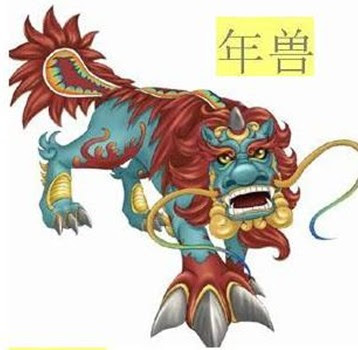| Name ▲▼ | Origin ▲▼ | Description ▲▼ |
|---|---|---|
| Goddess name "P'an Niang" | China | A goddess of vaccination |
| God name "P:erende" | Albanian | A storm god that lets you know he is around with thunder & lightning. It was used by the Christians to identify their god in that region |
| Goddess name "Pa-bil-sag" | Mesopotamian / Sumerian / Babylonian - Akkadian | Tutelary god of Isin. The consort of the goddess NIN'INSINNA. Identified with the city of Larak (lost), texts describe Pabilsag journeying to Nippur and presenting the god ENLIL with gifts. He is given the epithet of the wild bull with multicolored legs.... |
| God name "Pap-nigin-gara (lord of the boundary stone)" | Mesopotamian / BabylonianAkkadian | God of war. Syncretized with NINURTA.... |
| God name "Papsukkal" | Mesopotamian / BabylonianAkkadian | Messenger god. Identified in late Akkadian texts and known chiefly from Hellenistic Babylonian times. His consort is AMASAGNUL and he acts as both messenger and gatekeeper for the rest of the pantheon. A sanctuary, the E-akkil, is identified from the Mesopotamian site of Mkis'. He becomes syncretized with NINS'UBUR.... |
| God name "Perende" | Pre - Christian Albanian | storm god. In the ancient Illyrian culture his presence was announced by thunder and lightning. The name subsequently became adopted to identify God in the Christian sense.... |
| God name "Perkons" | Pre - Christian Latvian | God of thunder. Depicted armed with iron weapons, he is also a fertility god who brings beneficial Rain. Also Perkunas (Lithuanian).... |
"Phanothea" | Greek | Was the wife of the Athenian Icarius. She was said to have invented the hexameter. Porphyrius designates her as the Delphic priestess of Apollo. Greek |
| Goddess name "Poludnitsy" | Slavic | Ukranian moon-goddesses. |
| Demon name "Polunocnica" | Ukranian | 'Lady Midnight'. A demoness said to frighten children at night. She seems to have originally been the third Zorya of midnight with sisters dawn and Sunset. Ukranian |
| Goddess name "Prende" | Albanian | Goddess of love and consort of the thunder god Perende. Albanian |
| Goddess name "Prende" | Pre - Christian Albanian | Goddess of love. The consort of the thunder god Perendi who became absorbed into Christianity as a saint.... |
| God name "Priapos" | Greco - Roman / Phrygian | Fertility god. The son of DIONYSOS and APHRODITE, he was also a guardian of mariners. Priapos was not regarded as a significant deity in Greece until very late timesduring the Macedonian period, circa fourth to second century BCand was only locally popular during the Roman Empire period. He is particularly known from Phrygia and is depicted as a satyr-like creature with pronounced genitals.... |
"Romulus and Remus" | Roman | Romulus, which is only a lengthened form of Romus, is simply the Roman people represented as an individual, and must be placed in the same category as Aeolus, Dorus, and Ion, the reputed ancestors of the Aeolians, Dorians, and lonians, owing to the universal practice of antiquity to represent nations as springing from eponymous ancestors. Roman |
| God name "S ara" | Mesopotamian / Sumerian / Babylonian - Akkadian | Minor war god. Mainly identified with the city of Umma, north east of Unug (Uruk), and identified in some texts as the son of INANA (IS TAR).... |
"Sa" | Babylonian | The remote and inscrutable divinity of the cosmic deep. Babylonian |
| God name "Sakka(n)" | Mesopotamian / BabylonianAkkadian | God of cattle. A patron god of herdsmen, probably deriving from the Sumerian god LAHAR. Also Amakandu, Sumuqan.... |
| God name "Sala" | Babylonian | The female consort of the Sun-god of Eridu. Babylonian |
Table of Gods
Your guide to the World gods, spirits,
demons and legendary monsters

The Legend of Nian Monster
Chinese people held the first New Year Festival more than 3,000 years ago. Farmers gave thanks for the harvest and prayed. They asked the gods for good crops in the coming year.
But there is a story behind all the celebration, below is the legend of how the Chinese New Year celebration began.
Legend has it that in ancient times, there was a monster called "Nian" ("year") that would come out to eat people and animals on the eve of every New Year. To avoid the monster's attack, people would flee to the depth of the mountains and call this day "Nian Guan" (meaning "the Pass of Nian"). On one New Year's Eve, there came an old beggar in Peach Blossom Village, where an old lady gave him some food and asked him to hide himself in the mountain to avoid the monster Nian. The old man promised that he could drive the monster away as long as he was put up for the night at the old lady's home. Being unable to persuade the old man into hiding in the mountain, the old lady went alone. In the middle of the night, the monster Nian dashed into the village. He trembled and cried when he saw the red paper on the door of the old lady's house, which was brightly lit. Just as the monster reached the entrance, there came blasting sounds that prevented him from moving any further. At that time, the old man, wearing a red robe, opened the door and the monster was scared away.
The following year, the villagers were ready for it. They set off firecrackers, lit all their lamps and decorated their houses in red, they paste red paper on the doors, wear red clothing, hang up red lanterns. They made loud music, play the gong and drums and they dance and burn the fireworks whenever Nian was about to arrive, to scared away the beast.This is how these customs came into being.
